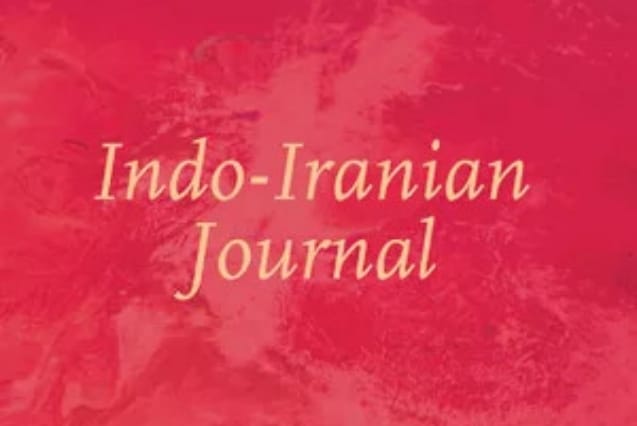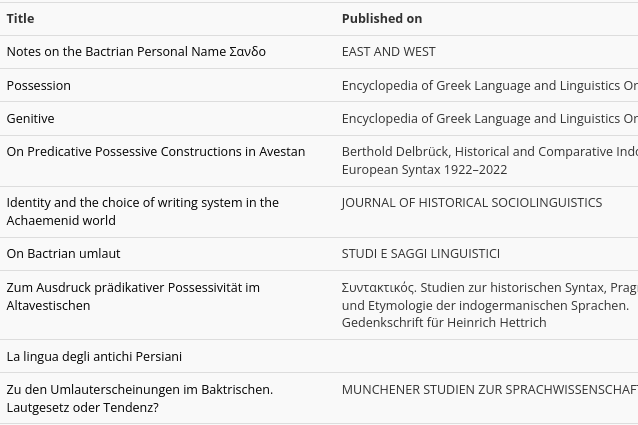Dastur, Arish. 2025. Imbued with the essence of the Gods: The intersection between Zoroastrian theology and the Old Avestan possessive adjectives derived from personal pronouns. Bulletin of SOAS, FirstView 1–34.
The Gāϑās of Zaraϑuštra provide us with the Old Avestan attestations of the adjectives mauuaṇt-, ϑβāuuaṇt– and xšmāuuaṇt-/yūšmāuuaṇt-. The adjective mauuaṇt– occurs twice in the Gāϑās, while ϑβāuuaṇt– occurs five times and xšmāuuaṇt-/yūšmāuuaṇt– occurs seven times. Over the years, little effort has been put into studying the broader context in which these words are situated or into understanding the specific use and significance of these words in the Gāϑās. The basis for their translation has mostly been exogenous, with the early Avestan scholars using the readily available meanings of the Vedic equivalents mā́vat-, tvā́vat– and yuṣmā́vat– for this purpose. In contrast, this article endeavours to understand the meaning and significance of the words mauuaṇt-, ϑβāuuaṇt– and xšmāuuaṇt-/yūšmāuuaṇt– in the context of Zoroastrian theology. It further seeks to examine the morphological basis of their meaning, to offer updated translation options for them and to situate these updated translations into the Gāϑic stanzas in which they occur.
Abstract

Dastur, Arish. 2024. Contending for the cosmos: A Zoroastrian poet’s mysterious rival. Journal of the Royal Asiatic Society 34(1). 79–108.
The ancient Zoroastrian hymn of worship dedicated to the frauuaṣ̌i-s (affirmative choices) of righteous mortals and divinities refers to an important discourse that takes place between an unnamed Zoroastrian poet-sage and his mysterious rival, named Gaōtəma. The figure of Gaōtəma has intrigued Avestan scholars through the years, but the significance and the implications of Gaōtəma’s identity, and of his presence in the hymn, has to date not been seriously studied. This article first examines the context in which Gaōtəma is presented in the hymn. Building upon this, it then evaluates four potential identities for Gaōtəma: Avestan, Turanian, Buddhist, and Vedic. Conducting a multidisciplinary and comparative assessment, the article eventually argues in favour of a Vedic identity for Gaōtəma, specifically that of a poet-sage who was a proponent of the Rig Vedic divinity Indra. This investigation into Gaōtəma’s identity concomitantly provides important perspectives on certain aspects of the Zoroastrian religion, and often in a comparative context.
Abstract








